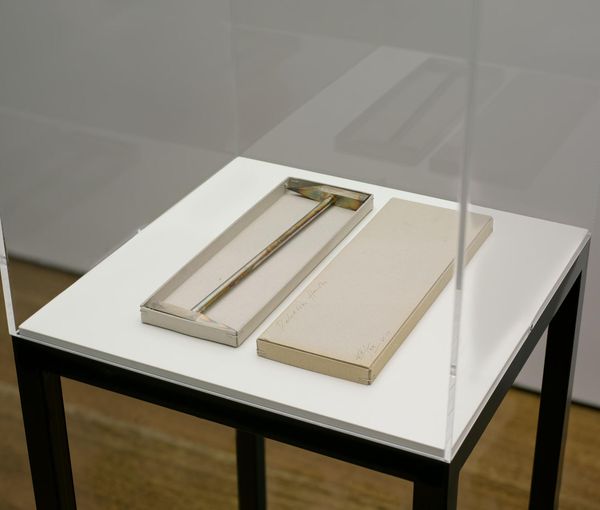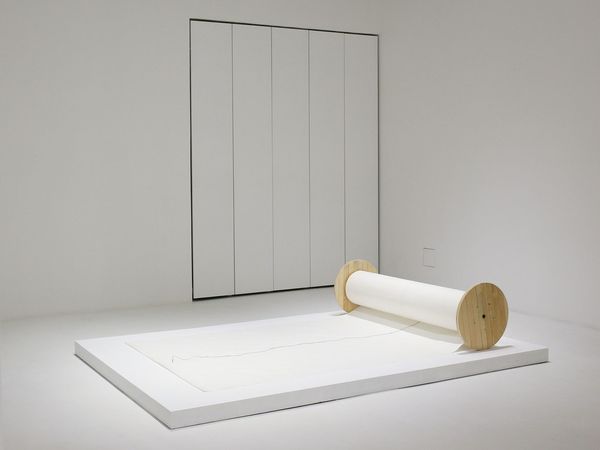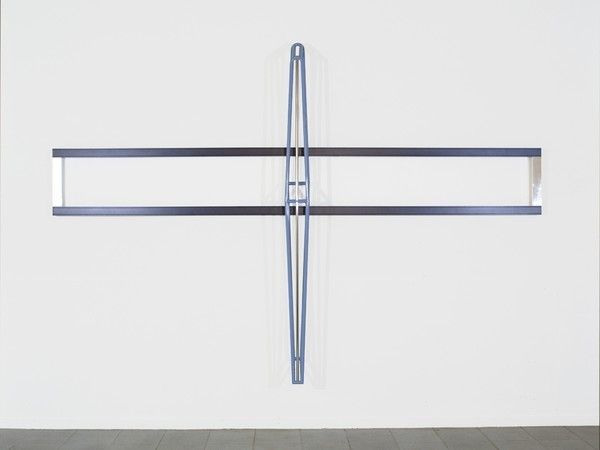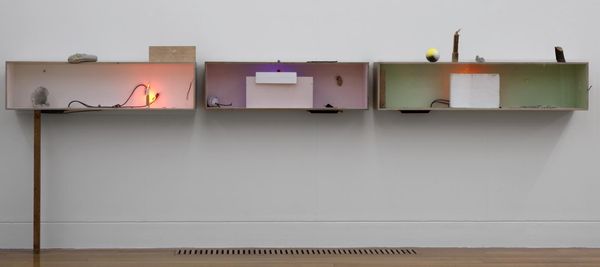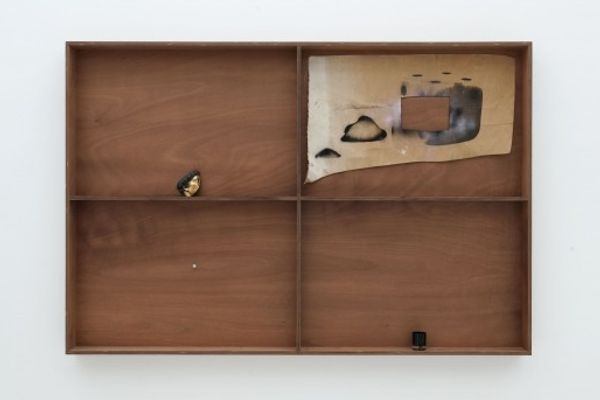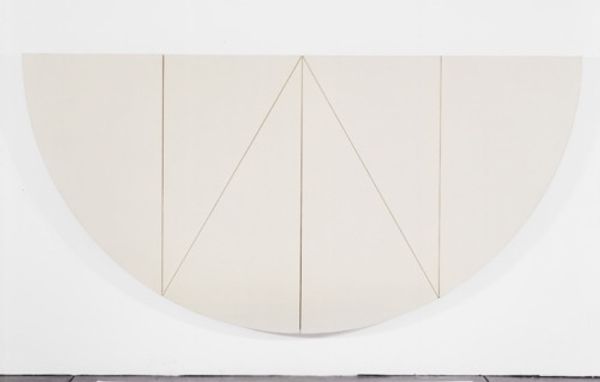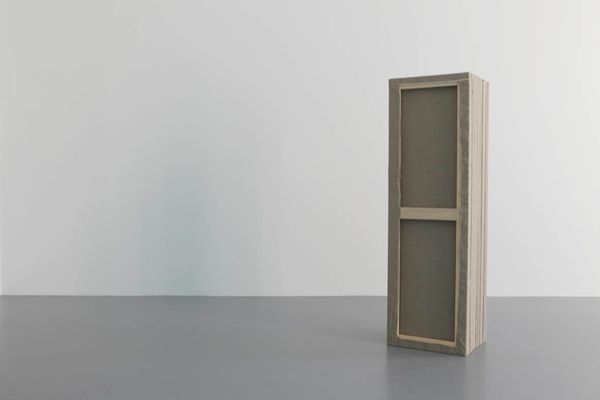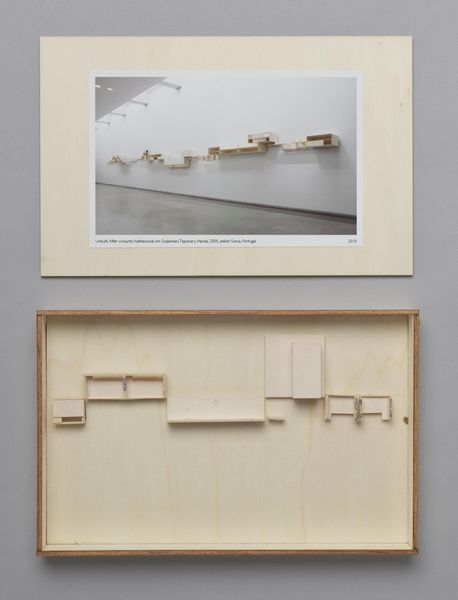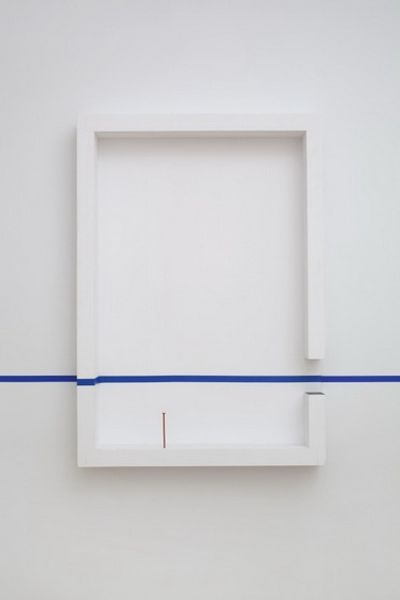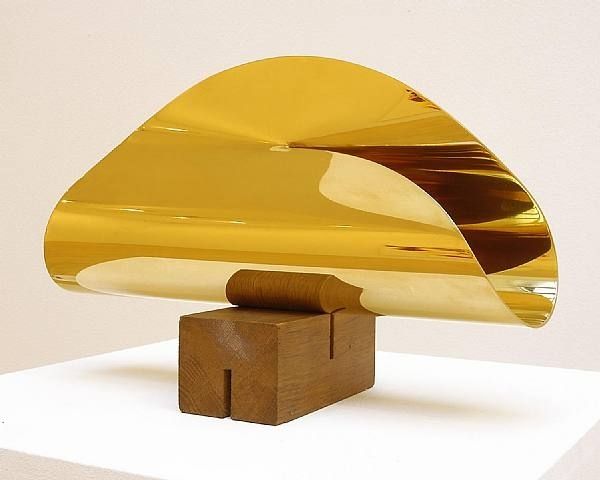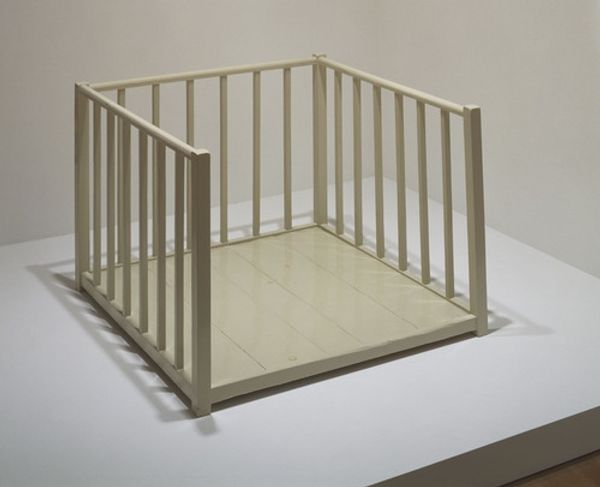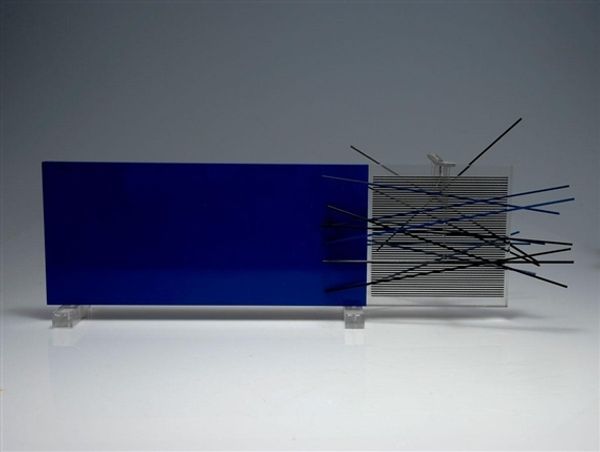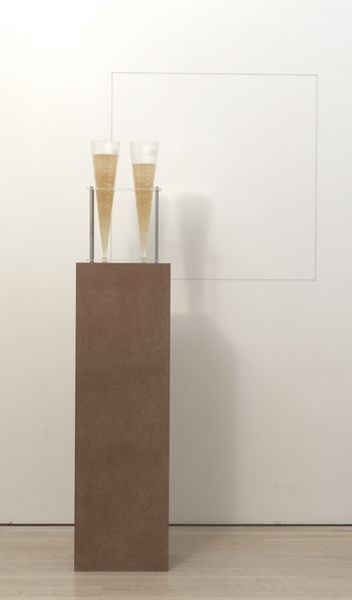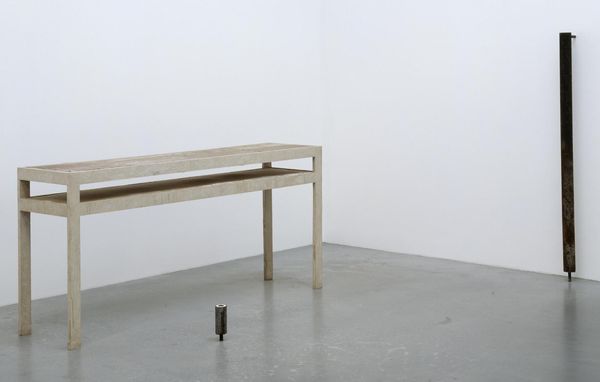
Dimensions: displayed: 400 x 1300 x 900 mm
Copyright: © Succession Marcel Duchamp/ADAGP, Paris and DACS, London 2014 | CC-BY-NC-ND 4.0 DEED, Photo: Tate
Curator: We’re looking at Marcel Duchamp’s “3 Standard Stoppages,” currently on display here at Tate Modern. Editor: Well, immediately, I see a challenge to our expectations of sculpture – it seems so…deliberately mundane. Curator: Mundane, yes, but consider the process. Duchamp dropped meter-long threads onto canvases from one meter high. These were then fixed in place. Editor: Ah, so chance dictated form, not the artist’s hand directly. This challenges the notion of artistic skill, doesn’t it? Curator: Precisely! And these “stoppages” then served as a new, arbitrary “standard of measurement,” undermining the authority of established systems. It’s about the societal construct of measurement. Editor: And by presenting these materials so openly, he acknowledges their materiality. It’s not about illusion. Curator: Exactly, it acknowledges their materiality and the labor to create a critique of the establishment. A radical work questioning art's very definition. Editor: It gives you a lot to think about, I must admit. Curator: Indeed, quite revolutionary.
Comments
tatemodern 10 months ago
⋮
http://www.tate.org.uk/art/artworks/duchamp-3-stoppages-etalon-3-standard-stoppages-t07507
Join the conversation
Join millions of artists and users on Artera today and experience the ultimate creative platform.
tatemodern 10 months ago
⋮
Duchamp regarded chance as a means ‘to combat logical reality’. He made this work by dropping three threads, each a metre long, from a height equal to their length. He then cut wooden rulers to record the shape in which each thread had fallen. Duchamp described these as ‘a preserved metre, preserved chance’: a way of giving material form to a random process based on a simple idea. He said that this work opened the way for him ‘to escape from those traditional methods of expression long associated with art ’. Gallery label, February 2022
